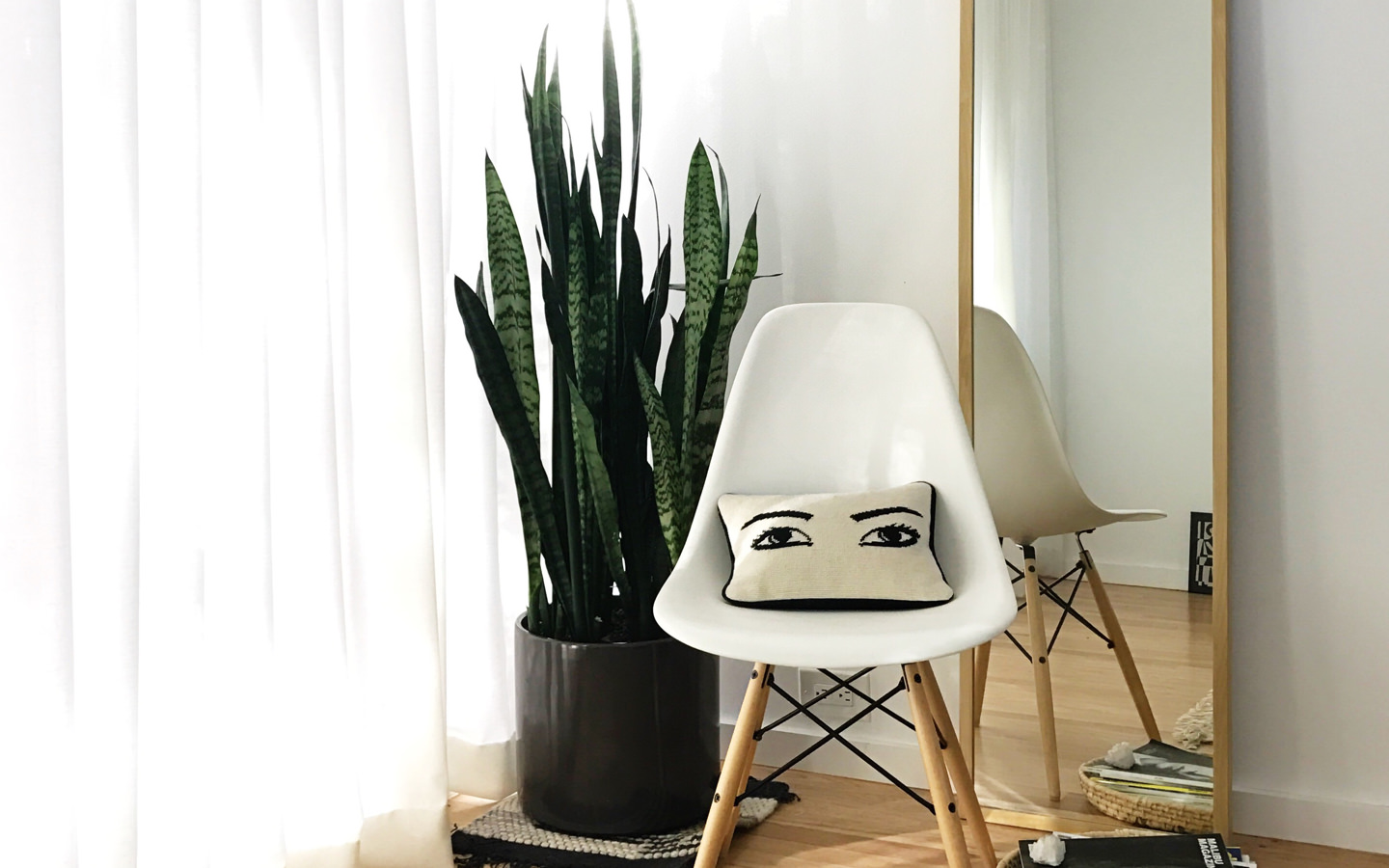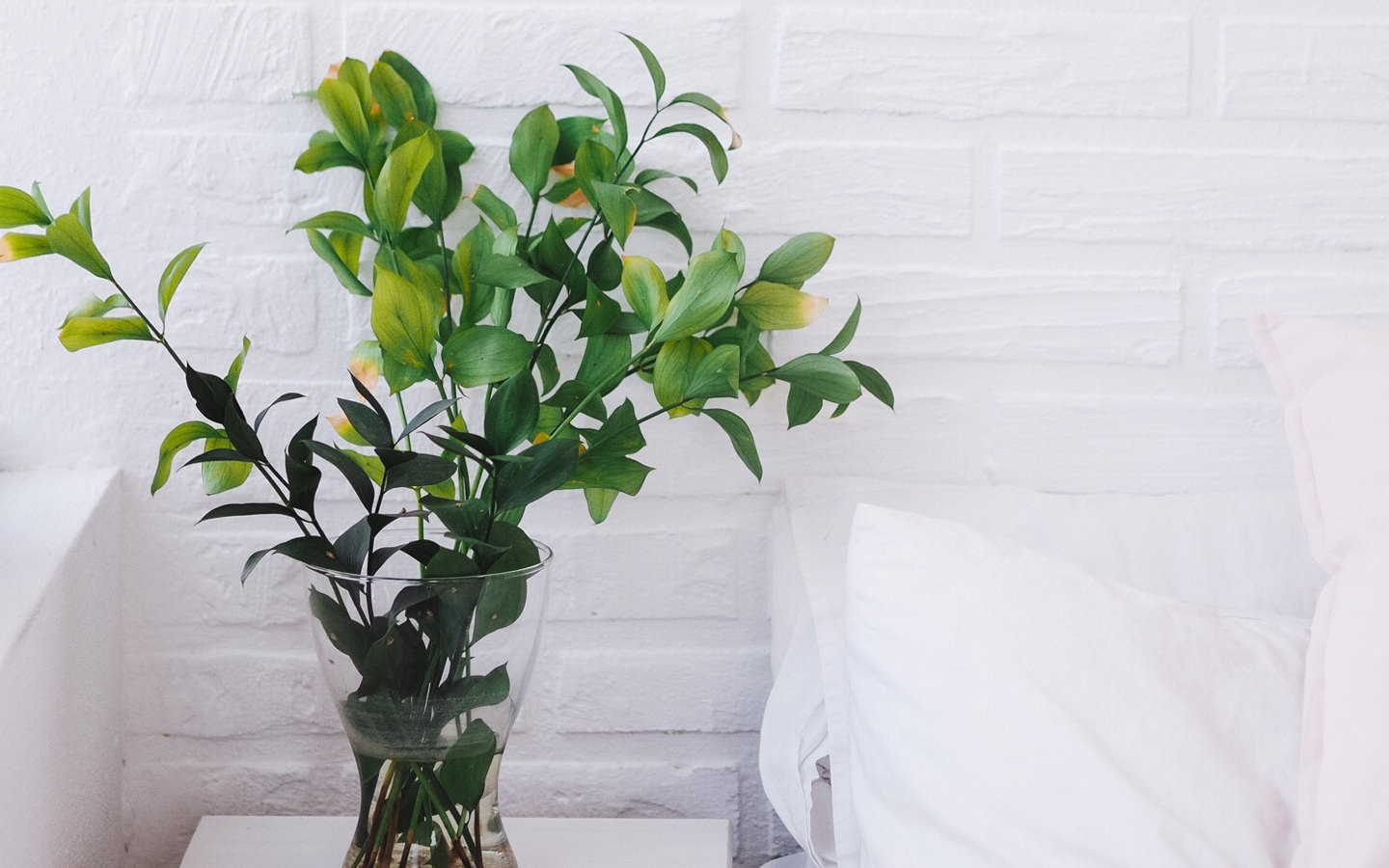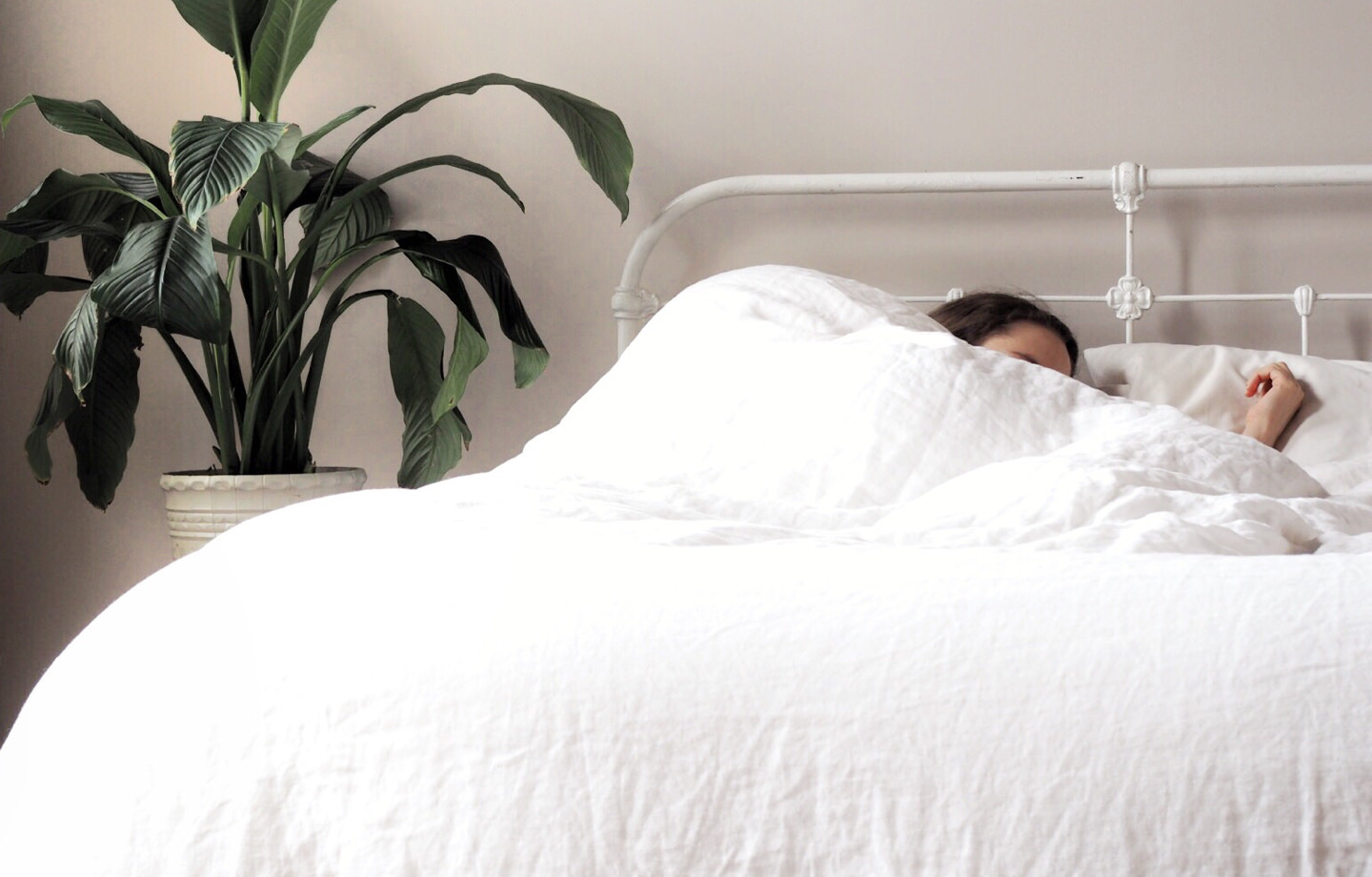Sleeping indoors is lovely. I mean, who doesn’t love not getting rained on and heat on-demand? But sleeping indoors also means hanging out in a big box all day with every air pollutant we create, from smoky kitchens to product off-gassing, and bad air means bad sleep. To freshen your air and bring your brain ‘round to the idea of sleeping peacefully all night, there are some plants you can keep in your bedroom that require little maintenance and provide a LOT of benefits.
#1 — Lavender
One of the most popular plants for sleep, lavender’s aromatherapeutic properties have been scientifically proven to reduce anxiety and ready the body for sleep.
Though lavender is a plant best suited to be grown outdoors, the smaller French varieties can be grown indoors (though they’re a bit less fragrant). These plants will have shorter stems and be more receptive to being in small containers, though they may require supplemental light.
#2 — English Ivy
English ivy? In your bedroom? Turns out this classic climber is a whiz at air purification, and grows very well under the right conditions.
The trick with growing ivy indoors is to keep it warm and moist, so make sure you invest in a good misting bottle if you choose to grow it in your bedroom. Trellises make for beautiful spaces for them to climb, but I’m a big fan of letting it wrap it’s way around a decorative birdcage!
#3 — Peace Lily
Peace lilies aren’t just naturally great at removing formaldehyde and benzene from the air, they also add humidity to it! Everyone sleeps better with a tiny bit of moisture in the air, so if you live in a particularly dry climate, this is a great plant to grow in your bedroom.
Peace lilies are incredibly low maintenance, and actually succumb to overwatering more than anything else. Just keep their soil moist by giving them a bit to drink once a week or so, and they’ll thrive in low-light conditions without supplemental light.

#4 — Bamboo Palm
Bamboo palms are another plant that purifies the air by removing toxins, and is also well-suited to keeping your bedroom smelling fresh by filtering out nasty impurities in the air.
This is a low-light plant, but take care to ensure it still gets the sunniest window in the room, or you’ll be left with a frond-less plant that looks more like sticks than anything else. This plant is also sensitive to over-watering, so make sure you only water it on an as-needed basis.
Some consider this plant to be slightly toxic, so if you have pets or children, make sure you keep it out of reach.
#5 — Snake Plant
Snake plants, also known as Mother-in-Law’s Tongue, are a plant known for air purification, but also for copious oxygen production during nighttime hours, making it fantastic for the bedroom. If you suffer from sleep apnea, this is a great one to throw into the mix.
Snake plants are tough, and do really well even in very low-light conditions. As with any houseplant, give it as much light as you can, and rest easy knowing there’s a wide margin for error.
Since this plant is a succulent, it stores a lot of water in its leaves, so be sure to only water it about as much as you would a cactus — very sparingly.
#6 — Aloe Vera
In addition to being incredible for cuts and scrapes (not to mention beauty products), aloe vera is another big night-time oxygen producer.
Only mature aloe vera plants will thrive indoors, so make sure you get one that’s a decent size for the sunniest window in your bedroom. Like other cacti, this one requires very little watering, so just give it a drink when you notice the soil getting particularly dry.
#7 — Gardenia
Gardenia has a beautiful, calming floral scent that is perfect for setting the mood in your bedroom for blissful slumber. These delicate white blooms look incredible in a window, and are compact enough for a reasonably sized planter.
However, gardenias are as delicate as they are beautiful. Growing them indoors will most likely require supplemental lighting, even in the sunniest windows, and these are plants that will need careful, attentive watering.

#8 — Gerbera Daisies
Another beautiful flower for the bedroom, gerbera daisies provide oxygenation with an intense burst of color that’ll brighten any space.
Gerbera daisies can be another challenging one to grow indoors, but under the right care, can go on to thrive for two to three years! The trick here is giving them enough sunlight without scorching them in a too-sunny window. If you have a window that gets good morning light, that’s ideal. If not, it might be best to move it away from a window and give it a grow light.
Gerbera daisies are also prone to root rot if overwatered, but require moist soil to keep those blooms lush and healthy. Your best bet is going to be watering a bit below the surface of the soil (try a glass watering globe) to avoid overdoing it.
#9 — Jasmine
Swoon. One of my favorite scents of all time, jasmine is another floral that has powerful aromatherapeutic benefits. The scent of these delicate flowers reduces anxiety and calms your nerves, helping you ease your busy mind into sleep mode at the end of a hectic day.
Jasmine comes in many different varieties, but one of the easiest to propagate indoors is a winter-blooming variety known as J. polyanthum. This plant produces TONS of beautiful pink flowers throughout the winter season, and is actually not terribly difficult to keep happy.
Jasmine is going to want to climb, so you’ll want some supports in your pot for it to grab onto. It does really well in sunny spots, so don’t hesitate to give it the brightest window in your bedroom. Also important is to have a well-drained pot, but keep the soil moist without fail.
Do you have any plants in your bedroom? Tell us which ones you love and why on Facebook or Instagram and tag us in the post! @AvocadoMattress or #AvocadoGreenMagazine

Shop Pillows
The Essential Organic Pillow Collection
Gentle, breathable, non-toxic support.






